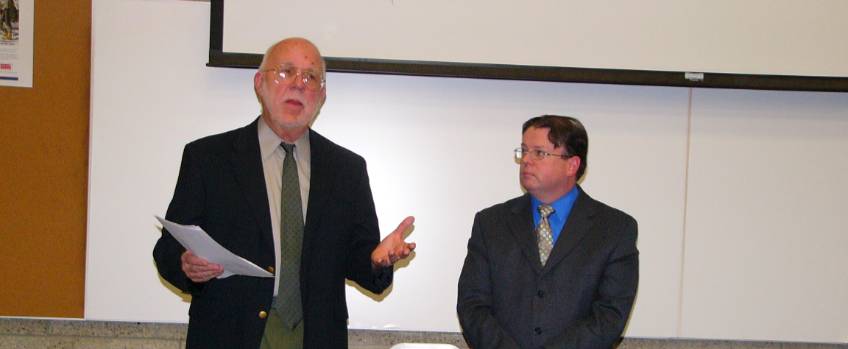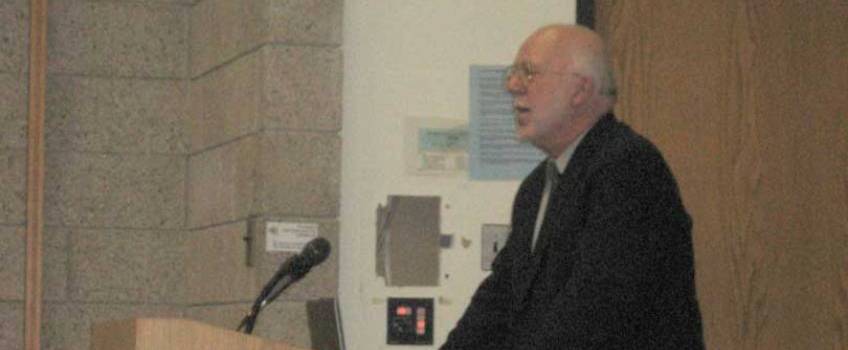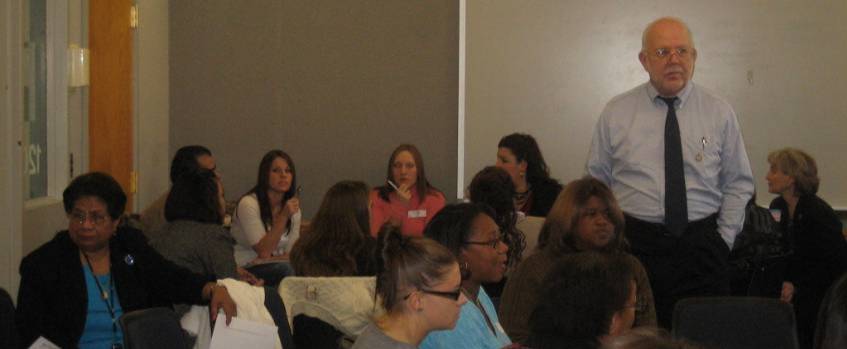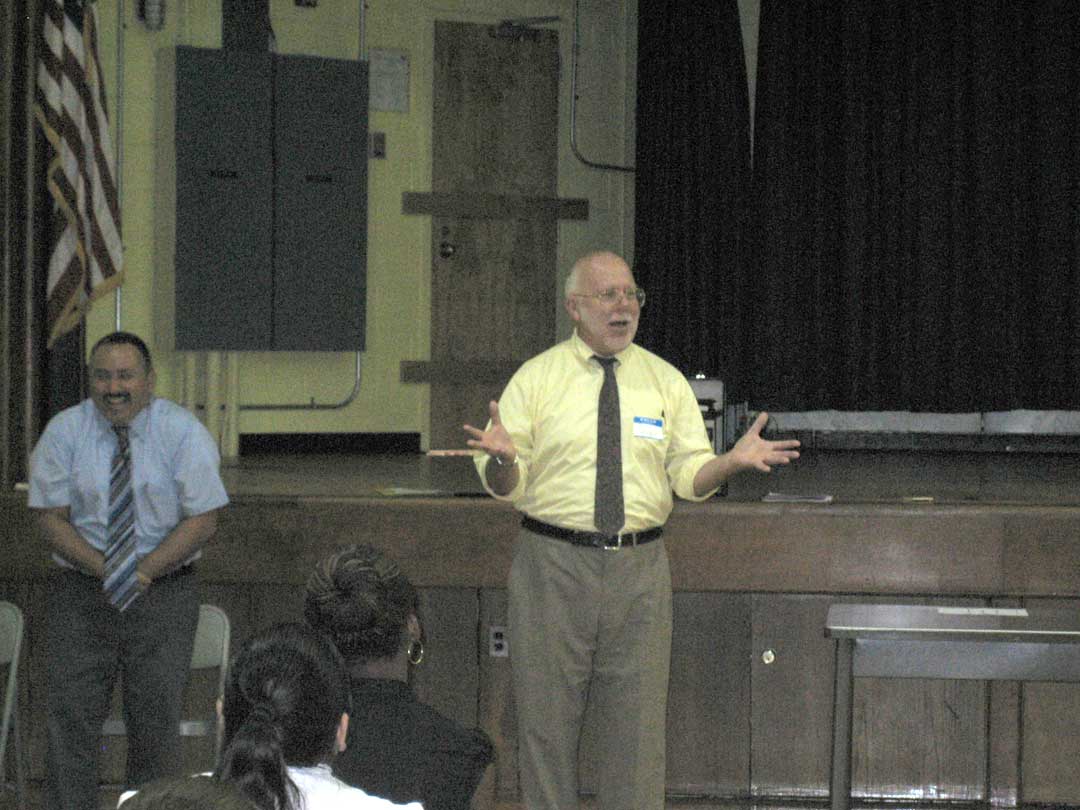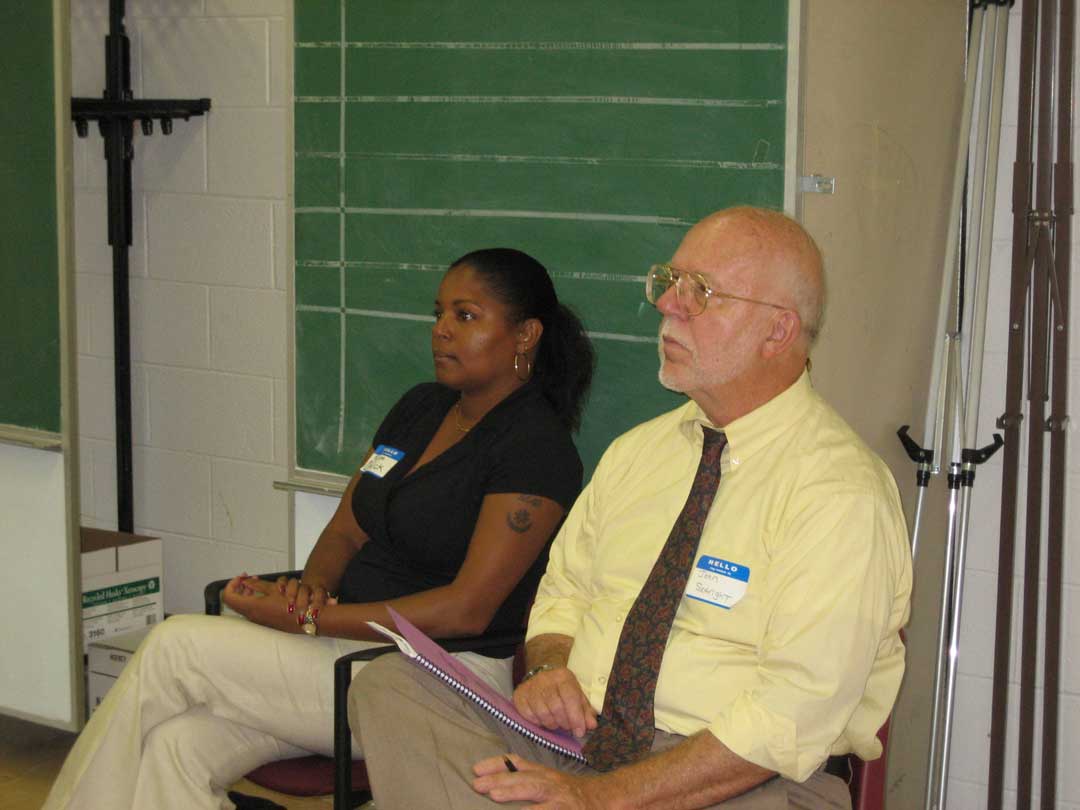In Remembrance
John W. Searight, Professor Emeritus of Social Work, died peacefully at home on March 26 after a long illness. He was eighty-six.
John graduated from Yale University in 1960 with a degree in philosophy. Soon after his marriage to Betsy, he was drafted and spent two years in the Army Corps of Engineers. Following his discharge, he earned a Master of Social Work degree from the University of Pennsylvania. John worked for the Pennsylvania Society to Protect Children for four years, which led to his professional interest in child welfare, especially child protection.
John came to the newly established Stockton State College in 1973, where he led the successful effort to earn accreditation for the new undergraduate Social Work Program and served as Program Coordinator from 1975-79. John was a beloved teacher within the program, providing his students with a solid foundation of social work theory, practice skills, and ethics. He developed and taught for many years a popular general studies course in child abuse and neglect, which attracted students from many other academic disciplines, including social work.
John soon won the respect and trust of his colleagues and was elected to several leadership roles in the new college. Eventually he was appointed Chair and then Dean of Stockton’s Division of Social and Behavioral Sciences, a role he held between 1985 and 1992. He continued teaching and coordinating field placements for the Social Work Program until his formal retirement in 2000.
When a major crisis erupted in New Jersey’s child welfare system in 2003 and 2004 with the discoveries of two child deaths and a horrific case of four adopted children being starved by their adoptive parents, John was consulted and agreed to come out of retirement to participate in an effort to offer assistance to the embattled child welfare system.
John’s years of working in the child welfare system in Pennsylvania, his administrative experience at Stockton, and his careful documentation of the child welfare crisis in New Jersey (now published on the CWEI website) were essential contributions to procuring a federal grant from the Children’s Bureau in 2004. The purpose of the $500,000 five-year grant was to recruit and prepare fifteen Stockton social work students each year for careers in public child welfare. This was to be done by recruiting interested social work students in their junior year, then providing them with a realistic view of the challenges and rewards of work in child protection through coursework and an internship within the system. In return, the Division of Youth and Family Services (now Child Protection and Permanency) offered them a guaranteed position as a family service specialist.
When New Jersey’s Department of Human Services learned that Stockton had obtained the federal grant, they expressed interest in broadening the program to include students from other accredited social work programs throughout the state. John then became a cofounder of the Baccalaureate Child Welfare Education Program (BCWEP), which started in 2005 and has since brought more than 600 social work students from accredited social work programs throughout New Jersey into caseworker positions in a transformed child welfare system. Many of these graduates have now moved into supervisory positions.
John helped create and remained an active participant in the BCWEP Consortium, which serves as a collaborative policy-making and problem-solving body and is composed of representatives of the participating colleges and universities, the NJ Department of Children and Families, and the NJ Chapter of the National Association of Social Workers. John created the original curriculum for Topics in Child Welfare, a model for the course that all BCWEP students are required to take. John was the Consortium’s historian, as well as a fierce advocate for students. His contributions to consortium discussions helped the group maintain clarity about the central purpose of BCWEP, which is to assure that child welfare workers are infused with social work values and bring a high level of skill in assessment and intervention into their work with New Jersey’s children and families.
John continued in this work well past his official retirement (2000), until 2024.
John will be fondly remembered by all for his love of birding and nature. Many of his colleagues and friends learned from him how to identify the first spring songs of the pine warbler, the call of the red-bellied woodpecker, and the flight of the osprey; and he provided many with advice on which binoculars are best for trips to Forsythe National Wildlife Refuge.
John’s children and grandchildren have been most important in his life, and he will be remembered fondly by all of them. He is survived by his wife Betsy, and three children: John Stuart Searight (Karen), Amy Searight, and Gregory Searight (Luannda), and by six grandchildren John, Brian, Karla, Jacqui, Rochelle (Brandon), and Aaron, and two great-grandchildren, Braylon Aiyuk and John Franklin Searight.
